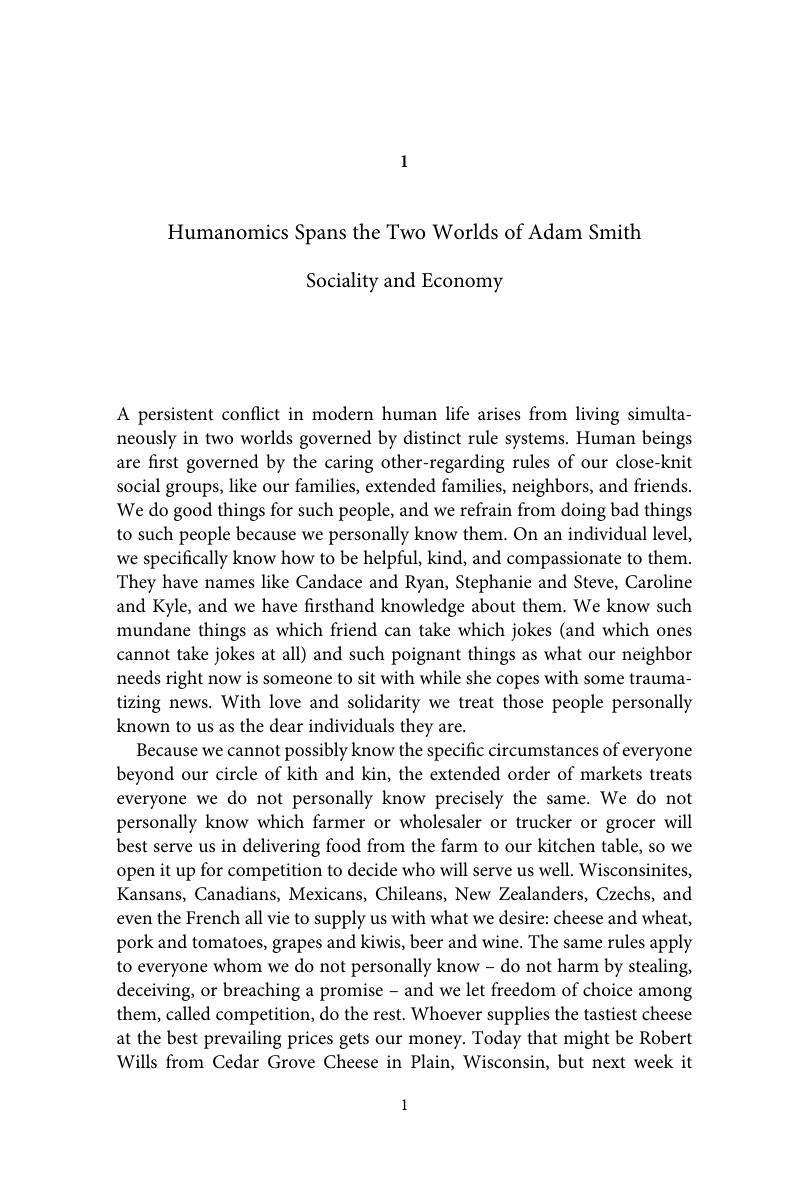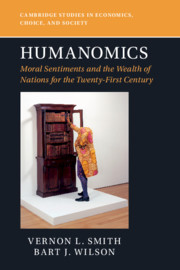Book contents
- Humanomics
- Cambridge Studies in Economics, Choice, and Society
- Humanomics
- Copyright page
- Dedication
- Contents
- Figures
- Tables
- Preface
- Acknowledgments
- Cover Art Note
- Note on the Text
- 1 Humanomics Spans the Two Worlds of Adam Smith
- 2 Words and Meaning in Adam Smith’s World
- 3 Conduct in the Social Universe
- 4 Frank Knight Preemptively Settles the Horse Race
- 5 Axioms and Principles for Understanding Human Conduct
- 6 Propositions Predicting Context-Specific Action
- 7 Propriety and Sympathy in a Rule-Governed Order
- 8 Trust Game Discoveries
- 9 The Ultimatum Game as Involuntary Extortion
- 10 Designing, Predicting, and Evaluating New Trust Games
- 11 Reconsidering the Formal Structure of Traditional Game Theory
- 12 Narratives in and about Experimental Economics
- 13 Adam Smith’s Program for the Study of Human Socioeconomic Betterment
- Index
- References
1 - Humanomics Spans the Two Worlds of Adam Smith
Sociality and Economy
Published online by Cambridge University Press: 04 January 2019
- Humanomics
- Cambridge Studies in Economics, Choice, and Society
- Humanomics
- Copyright page
- Dedication
- Contents
- Figures
- Tables
- Preface
- Acknowledgments
- Cover Art Note
- Note on the Text
- 1 Humanomics Spans the Two Worlds of Adam Smith
- 2 Words and Meaning in Adam Smith’s World
- 3 Conduct in the Social Universe
- 4 Frank Knight Preemptively Settles the Horse Race
- 5 Axioms and Principles for Understanding Human Conduct
- 6 Propositions Predicting Context-Specific Action
- 7 Propriety and Sympathy in a Rule-Governed Order
- 8 Trust Game Discoveries
- 9 The Ultimatum Game as Involuntary Extortion
- 10 Designing, Predicting, and Evaluating New Trust Games
- 11 Reconsidering the Formal Structure of Traditional Game Theory
- 12 Narratives in and about Experimental Economics
- 13 Adam Smith’s Program for the Study of Human Socioeconomic Betterment
- Index
- References
Summary

- Type
- Chapter
- Information
- HumanomicsMoral Sentiments and the Wealth of Nations for the Twenty-First Century, pp. 1 - 18Publisher: Cambridge University PressPrint publication year: 2019



